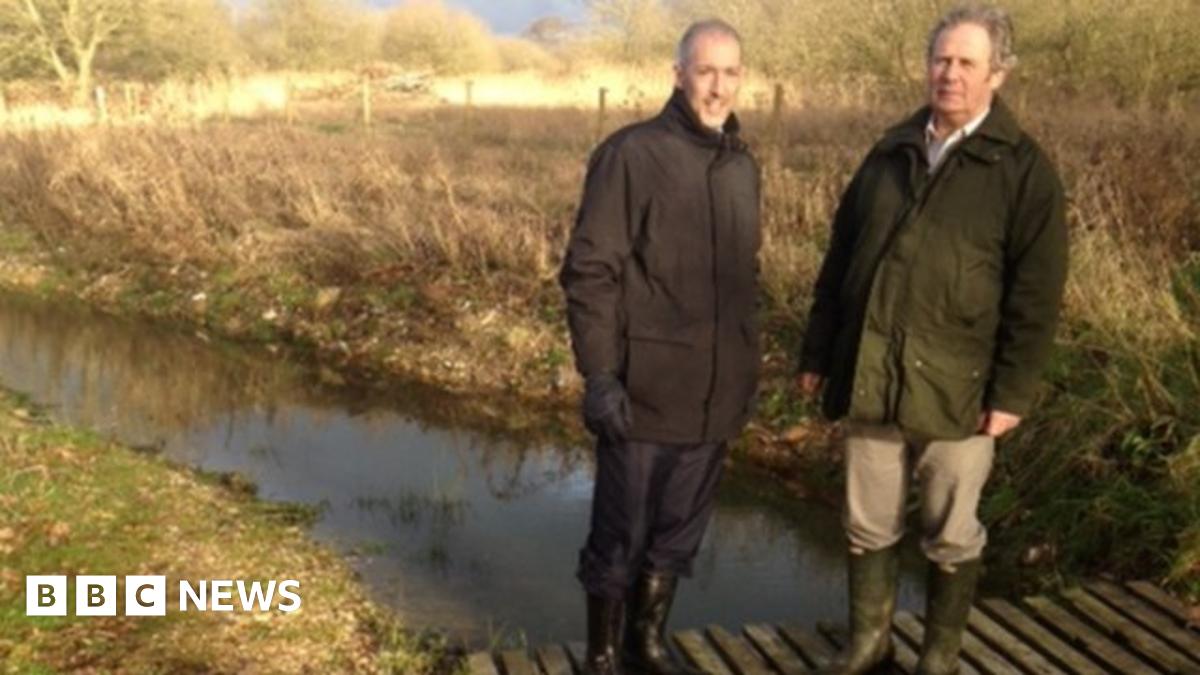A wondrous place, full of magical history and still filling the visitor with a sense of 'the other wordly'. It's a landscape of flattish fields and marshland, criss-crossed with dykes (known as 'rheins') presided over by Glastonbury Tor. We're talking, of course, of The Somerset Levels. It has always flooded, much of it being below sea-level, and some of the village names, Chedzoy, Middlezoy, Weston Zoyland, suggest they were once islands in a sea or 'zoy'. There are areas of reeds (the bittern is seen and/or heard here) and willows...that don't mind getting their feet wet...are grown for 'withies' , thin stems harvested for basket-making. An ancient local craft.
The drainage of The Levels has always been complicated. Medieval monks built the first sea-defences around Highbridge, and much later, The Kings Sedgemoor Drain (actually a man-made river) assisted by taking some of the water from the Parrett's catchment area. In the 1960's (approx) The Parrett Relief Scheme (another artificial river) helped even more.
But latterly drainage has been disastrous because nobody knows how to do it any more. Between about 1950 and 1980 they had got things sussed...not that it never flooded, it did, but nothing like on the present scale. This is because there are now multiple 'agencies', endless committees, jargon and paperwork of the sort that has beset many aspects of modern life.
This is how things worked in the golden era. The Somerset River Board, latterly the Somerset River Authority employed a divisional engineer whose direct responsibility was the draining of The Levels. He presided over a network of Marsh Bailiffs, local men who knew what happened if you opened such-and-such a sluice, and where the water would go. He controlled pumping stations. He also had a direct workforce at his disposal, mainly consisting of drag-line operators [drag-lines being a type of crane with buckets] that could scoop out the beds of rivers. ..The Ile, The Brew, The Parrett, etc...and dump the spoil on the sides thus increasing their capacity and preventing them from bursting their banks. This happened all the time. And there was constant adjusting of weirs, sluices, and importantly, pumping stations.
One such divisional engineer was my father-in-law. Occasionally on a Friday I would join him in his rounds, where, dog at his heels, he would deliver pay-packets to all his 'men' whom he knew personally. He would chat with them about drainage and life in general. Thus were The Levels drained. It is probably the most demanding drainage system in the country (harder to get right than East Anglia). Alas the knowledge of how to do it has gone.
As this is the R3 Forum, I'll just mention that my father-in-law loved Choral Evensong (especially the psalms) and played the organ in a Somerset village church for many years.
The drainage of The Levels has always been complicated. Medieval monks built the first sea-defences around Highbridge, and much later, The Kings Sedgemoor Drain (actually a man-made river) assisted by taking some of the water from the Parrett's catchment area. In the 1960's (approx) The Parrett Relief Scheme (another artificial river) helped even more.
But latterly drainage has been disastrous because nobody knows how to do it any more. Between about 1950 and 1980 they had got things sussed...not that it never flooded, it did, but nothing like on the present scale. This is because there are now multiple 'agencies', endless committees, jargon and paperwork of the sort that has beset many aspects of modern life.
This is how things worked in the golden era. The Somerset River Board, latterly the Somerset River Authority employed a divisional engineer whose direct responsibility was the draining of The Levels. He presided over a network of Marsh Bailiffs, local men who knew what happened if you opened such-and-such a sluice, and where the water would go. He controlled pumping stations. He also had a direct workforce at his disposal, mainly consisting of drag-line operators [drag-lines being a type of crane with buckets] that could scoop out the beds of rivers. ..The Ile, The Brew, The Parrett, etc...and dump the spoil on the sides thus increasing their capacity and preventing them from bursting their banks. This happened all the time. And there was constant adjusting of weirs, sluices, and importantly, pumping stations.
One such divisional engineer was my father-in-law. Occasionally on a Friday I would join him in his rounds, where, dog at his heels, he would deliver pay-packets to all his 'men' whom he knew personally. He would chat with them about drainage and life in general. Thus were The Levels drained. It is probably the most demanding drainage system in the country (harder to get right than East Anglia). Alas the knowledge of how to do it has gone.
As this is the R3 Forum, I'll just mention that my father-in-law loved Choral Evensong (especially the psalms) and played the organ in a Somerset village church for many years.





Comment